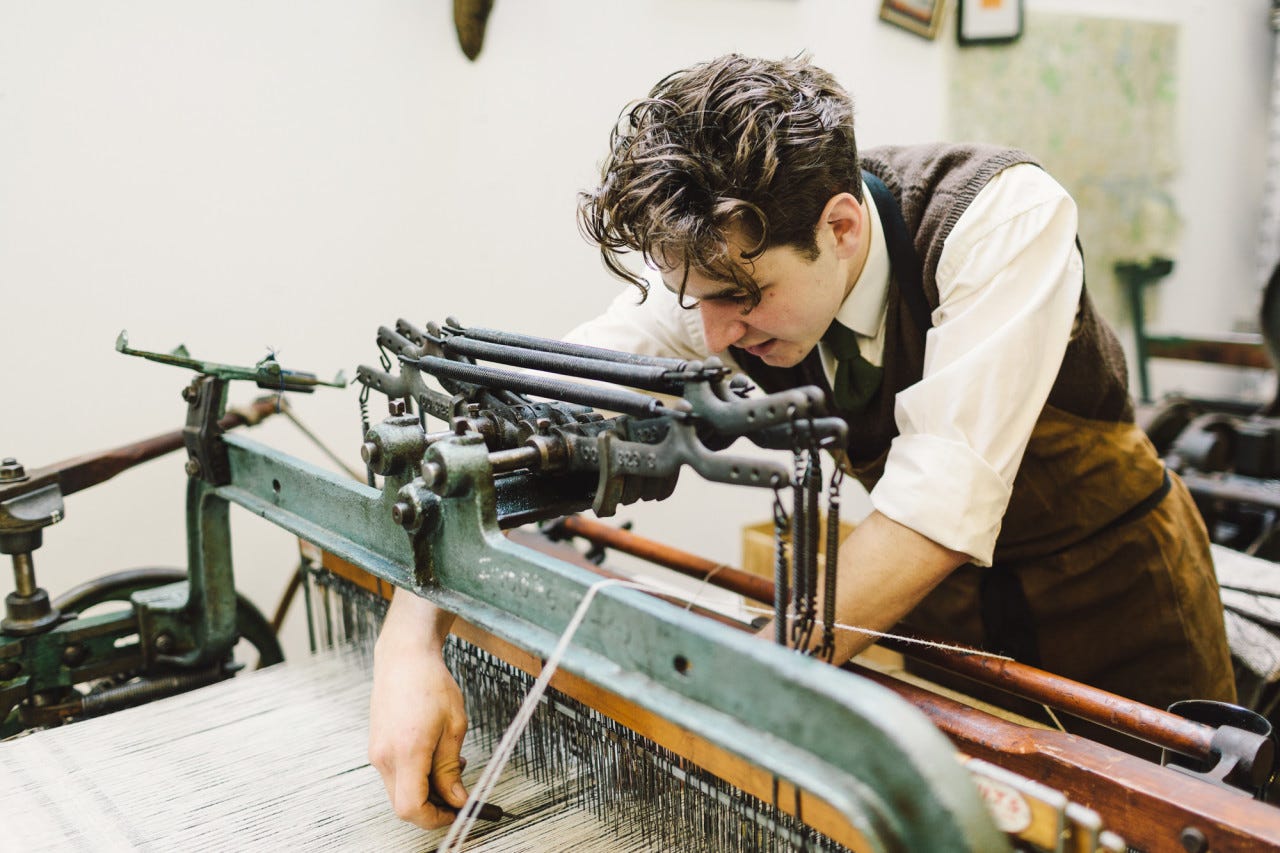Boss Tweed
In a London neighborhood once home to generations of immigrant textile workers, one eccentric Englishman works stitch by stitch to revive the city’s dormant cloth industry.
Wiry, wild-haired and encased in a giant wax jacket, Daniel Harris is digging through a box of samples, brandishing a pair of fabric scissors the size of a machete. His audience, wearing a faintly bemused smile, is the representative of a major Japanese buyer, and a potential client, in what passes for Harris’ office—the only square of empty space at the dead center of the London Cloth Company’s East London workshop.
If Harris is on the verge of a sale, it is far from obvious. The customer, Harris explains later, has long been an important power broker between the capitals of Europe and Asia, a fixture in Milan. Now she sits amid the airborne dust, an island of measured calm in the midst of the unrestrained lunacy of Harris’ shed. He buzzes back and forth, finding samples, visibly restraining himself from another long digression as he answers her questions on the capacity of his tiny factory, and shows off his jacket, the product of another venture some years befo…


